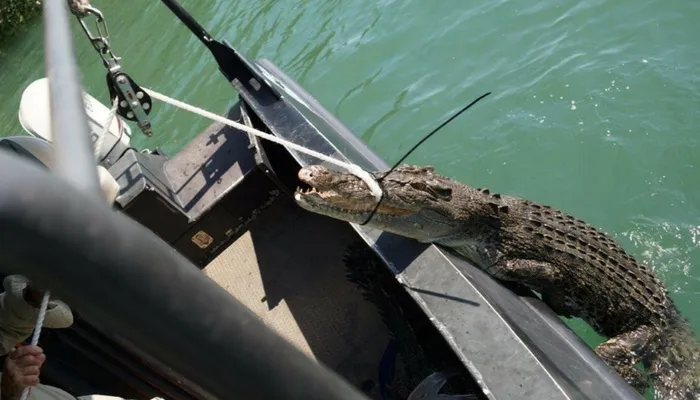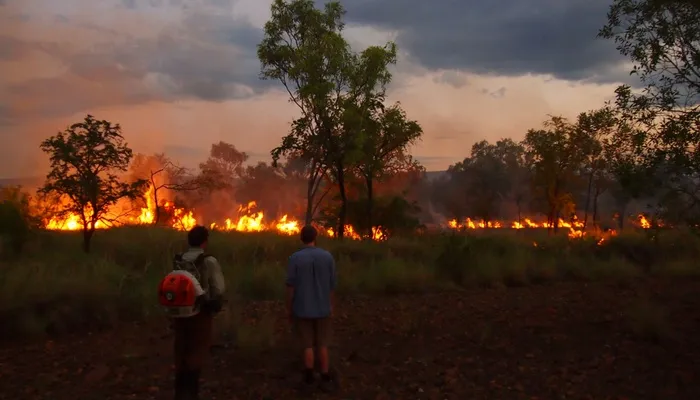Research impact
How I became an environmental science researcher
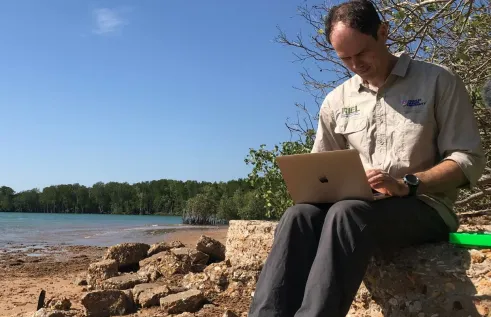
For Professor Sam Banks, becoming an Environmental Science researcher has meant turning his passion for the environment into a career that revolves around protecting it. Here, Sam tells us how he’s forged a successful career in environmental conservation research and offers his advice for getting the most out of your undergraduate Environmental Science degree - especially if you’re interested in research.
Sam is an Outstanding Professor at CDU, where he spends his time using genomics and ecology to understand biodiversity. He is also passionate about passing his knowledge on to the next generation of environmental researchers, so dedicates much of his time supervising research students.
How did you come to be a researcher?
In a roundabout way! I enrolled in an Engineering degree when I finished high school. That lasted about a week before I realised it wasn't for me.
I’d always been one of those kids who liked going into the bush and chasing animals around.
I loved the environment, wild places and wildlife. So I enrolled in an undergraduate degree in Arts and Science. Initially, it was more out of passion than strategy. When I got to the end of my degree, I did my Honours and found I really enjoyed the research component. That's when my research career was set in motion.
How did get a research job?
My first full-time job was working at university for a year and a half. I was working on environmental research projects and developing endangered species monitoring programs for the Queensland and Victorian Governments. I also worked on some genetic research that was funded by various Australian Research counsel grants.
What’s your advice for Environmental Science students seeking a research career?
Look for opportunities at uni that are outside of traditional lectures and tutorials. It’s worth making an effort find out what's happening around you, particularly the research activity being undertaken in the university departments that are teaching you.
Get to know the lecturers. They can be instrumental in helping you set up professional networks, introducing you to research projects that are underway, and giving you opportunities to volunteer for field work in some really cool places.
Build your networks. You’ll probably find that your lecturers are also researchers, and that they’re closely connected to others in the research industry. If you’re studying and hope to work in research, it makes sense to start building networks during your undergraduate studies. Take every opportunity you can to network with people who participate in research collaborations, or who run federal, state and local environmental management organisations and other similar institutions.
Find out if you can volunteer. I didn't really see volunteering as a career opportunity when I did my undergraduate degree. But it was really interesting. It helped me find out what I wanted to do for my career and from there I ended up getting a PhD.
If you’re interested pursing a career as a researcher, explore CDU's Higher Degrees by Research.
Related Articles
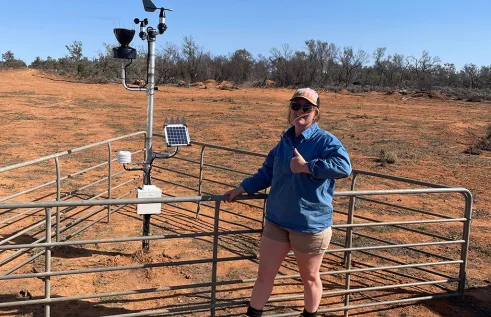
Following the flock: Samantha’s research could revolutionise water point placement
When Samantha first moved to South Australia's harsh outback, she was confronted by what she saw.
"Having recently moved to arid pastoral South Australia, I was struck by the hot, dry climatic conditions," she says. "I found myself questioning what made these landscapes so resilient, how livestock production could thrive in such conditions and whether this relationship was truly sustainable."
Read more about Following the flock: Samantha’s research could revolutionise water point placement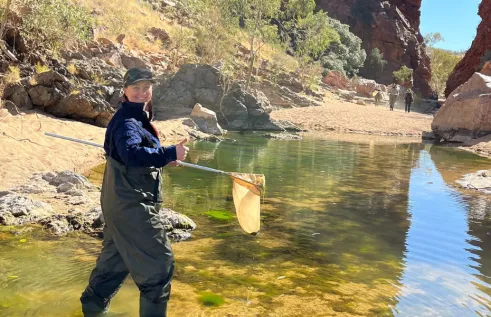
The NT inspired Kate to become an environmental scientist
A road trip around Australia sparked a huge career change for Kate. The recent Bachelor of Environmental Science graduate switched gears from real estate to environmental science after falling in love with the uniqueness of the Northern Territory.
Read more about The NT inspired Kate to become an environmental scientist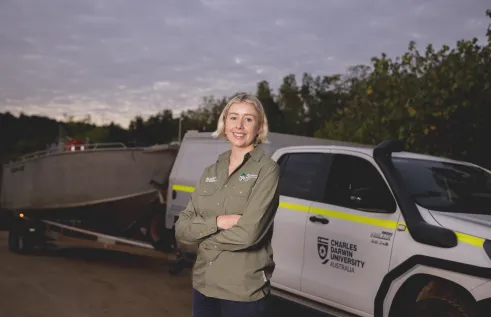
Julia's unexpected road to species-saving research
Julia is researching sharks and rays here in the Top End at Charles Darwin University, a world away from her upbringing in north-western NSW. She's working to ensure some of Australia's most threatened species are around for many generations to come.
Read more about Julia's unexpected road to species-saving research
